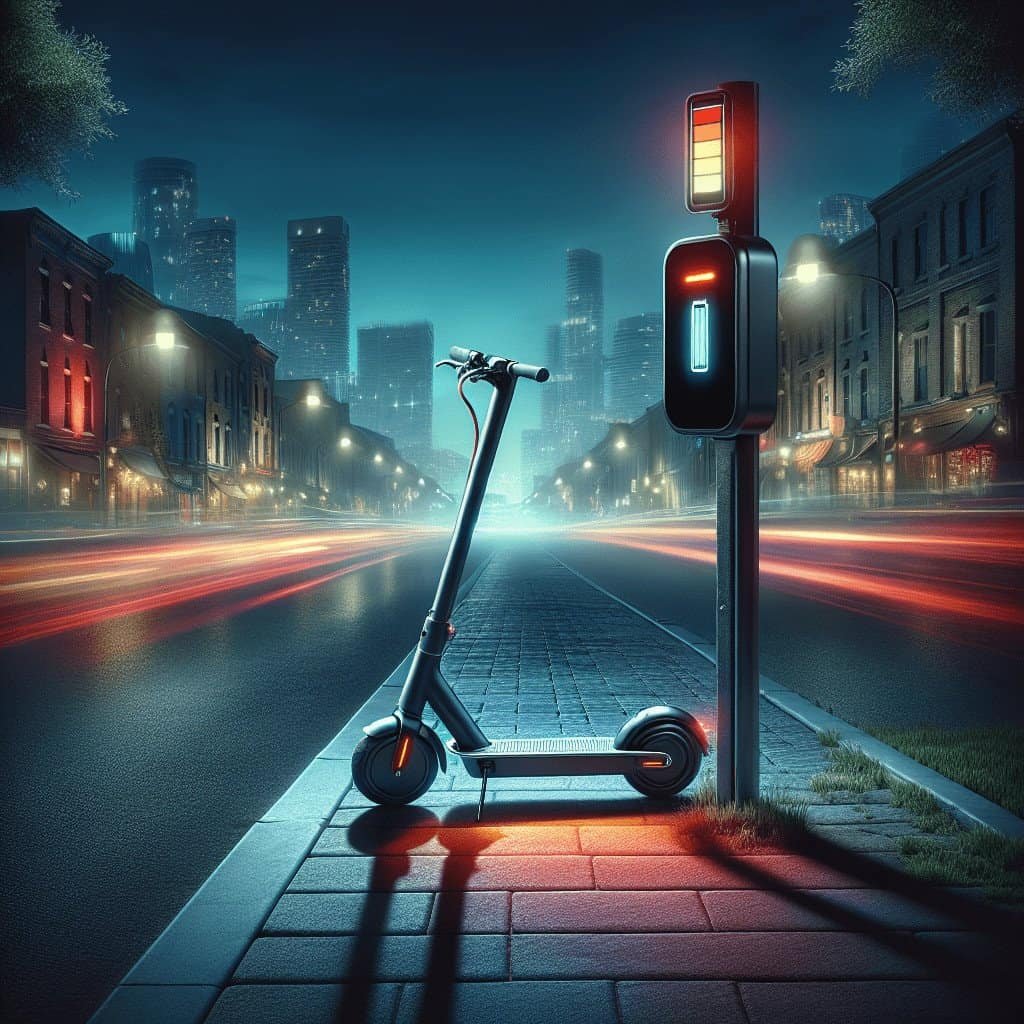So you’ve just bought yourself an electric scooter and you’re excited to hit the streets with your eco-friendly wheels. But before you do, you may be wondering if it’s possible to overcharge the battery of your new ride. Well, the short answer is yes, you can overcharge your electric scooter battery. But don’t worry, I’ve got all the information you need to ensure you don’t accidentally fry your battery and have a smooth, worry-free riding experience. Let’s dive in!
Can I Overcharge My Electric Scooter Battery?

Understanding Electric Scooter Batteries
Electric scooters are becoming increasingly popular as a convenient and eco-friendly mode of transportation. However, to enjoy the full benefits of an electric scooter, it is important to understand how its battery functions. Electric scooter batteries are typically lithium-ion batteries, which are known for their high energy density and long lifespan. These batteries work by storing electrical energy that powers the scooter’s motor.
Importance of Proper Charging
Proper charging is crucial for maintaining the longevity and performance of your electric scooter battery. Charging your battery correctly ensures that it remains in optimal condition, providing you with extended battery life and a more reliable riding experience. Overcharging, on the other hand, can have detrimental effects on the battery’s health and overall performance.
Effects of Overcharging an Electric Scooter Battery
Overcharging an electric scooter battery can result in several negative consequences. One of the most common effects is a reduced battery lifespan. When a lithium-ion battery is overcharged, it can lead to chemical reactions within the battery that degrade its overall capacity over time. This means that your battery will be able to hold less charge and provide less power to your electric scooter as you continue to use it.
Another consequence of overcharging is decreased battery efficiency. Over time, the battery’s ability to hold and deliver a sufficient amount of power will diminish. This can significantly impact your scooter’s performance, resulting in decreased speed and range. Ultimately, overcharging can lead to the need for more frequent battery replacements, which can be costly and inconvenient.
Potential Safety Hazards
Overcharging an electric scooter battery also poses certain safety hazards. Lithium-ion batteries are known to be susceptible to overheating and, in rare cases, may even catch fire or explode if they are subjected to extreme overcharging conditions. These safety hazards can not only damage your scooter but also pose a risk to your personal safety and the safety of those around you. Therefore, it is crucial to avoid overcharging your electric scooter battery to prevent such incidents from occurring.

Recognizing Signs of Overcharging
It is important to be able to recognize the signs of overcharging to prevent any potential damage to your electric scooter battery. One common indicator is an unusually hot battery during or immediately after charging. If you notice that your battery is excessively hot to the touch, it may signify that it has been overcharged. Additionally, if you notice any bulging or swelling of the battery casing, this is another sign of overcharging, as it indicates excessive gas buildup within the battery.
Best Practices for Charging an Electric Scooter Battery
To avoid overcharging your electric scooter battery, it is essential to follow some best practices when it comes to charging. First and foremost, always adhere to the manufacturer’s guidelines and instructions for charging your specific electric scooter model. Each scooter may have different charging requirements, including specific voltage or time durations. It is important to use the charger provided by the manufacturer or a charger specifically designed for your scooter to ensure compatibility and prevent overcharging.
You should also avoid leaving your electric scooter battery plugged in for extended periods after it has reached a full charge. Once your battery is fully charged, unplug it from the charger to prevent any chances of overcharging. Similarly, it is advisable to avoid leaving the battery connected to the charger overnight or for prolonged periods, as this can increase the risk of overcharging and potential safety hazards.

Common Myths about Overcharging
There are several myths regarding overcharging electric scooter batteries that need to be debunked to ensure proper battery care. One common myth is that leaving the scooter charging overnight will overcharge the battery. While it is generally recommended not to leave the battery connected to the charger for extended periods, modern electric scooters are equipped with advanced charging systems that prevent overcharging. Therefore, leaving your electric scooter plugged in overnight occasionally is unlikely to cause significant harm to the battery.
Another myth is that topping off the battery by charging it frequently, even when it is not fully depleted, will overcharge the battery. In reality, lithium-ion batteries do not have the memory effect that older battery technologies had. You can charge your electric scooter battery whenever it is convenient for you without worrying about overcharging. However, it is still recommended to avoid leaving the battery connected to the charger longer than necessary.
Tips to Extend Battery Life
To extend the life of your electric scooter battery and maintain its optimal performance, there are a few additional tips you can follow. Storing your scooter and its battery in a cool, dry place when not in use will help prevent unnecessary battery degradation. Extreme temperatures, both hot and cold, can negatively impact the battery’s lifespan and performance. Avoid exposing your scooter to direct sunlight for prolonged periods, as this can cause the battery to overheat and deteriorate faster.
Regularly cleaning your electric scooter battery terminals is also important. Over time, dirt, dust, and corrosion can accumulate on the battery terminals, reducing their efficiency and overall battery performance. Cleaning them with a soft cloth or brush and a gentle cleaning solution will help maintain proper contact and ensure optimal charging and discharging capabilities.

Conclusion
While it may be tempting to leave your electric scooter battery charging for extended periods, it is important to avoid overcharging to protect the battery’s lifespan, efficiency, and safety. By understanding the potential negative effects of overcharging, recognizing signs of overcharging, following best practices, and debunking common myths, you can ensure that your electric scooter battery remains in optimal condition for a longer period. By taking proper care of your battery, you can enjoy more reliable rides and extend the overall lifespan of your electric scooter.

